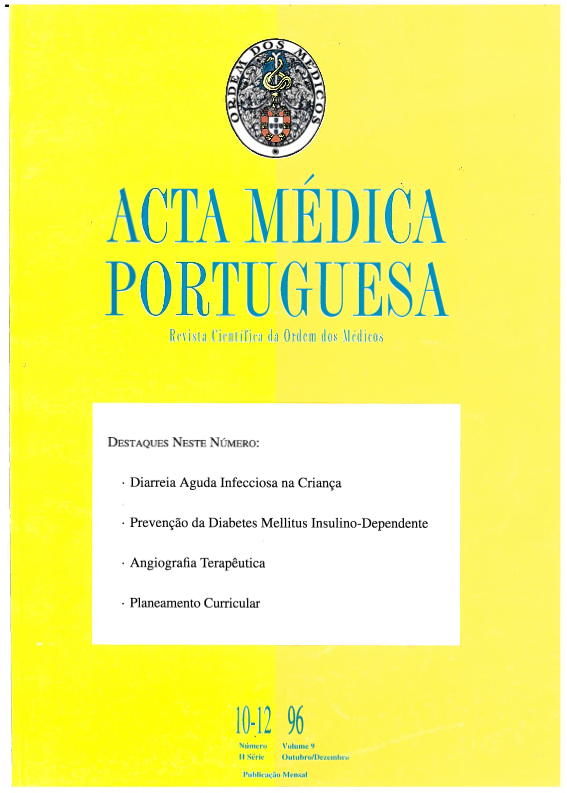The prevention of insulin-dependent diabetes mellitus.
DOI:
https://doi.org/10.20344/amp.2620Abstract
At the present time, there are markers which we can use to identify individuals with a high susceptibility of developing insulin-dependent diabetes mellitus (IDDM) years before the onset of the disease. Insulin-dependent diabetes mellitus is an autoimmune disease strongly associated with HLA antigens DR3 and DR4. In this manuscript, we discuss the usefulness of several markers, such as islet cell antibodies, insulin autoantibodies and glutamic acid decarboxylase antibodies, to identify individuals with a high susceptibility to IDDM before the disease is clinically evident. Monitoring first phase insulin release during intravenous glucose administration is a useful index of residual beta cell function that can be used to detect individuals who are close to insulin dependence. Several drugs have been used to prevent the development of IDDM. These include immunodepressors, anti-inflammatory agents, non-specific immunomodulators and free radical scavengers. Due to their toxicity, studies employing aziothioprine and cyclosporin were discontinued. Other agents, such as tetrandrin and lymphotoxin, are now restricted to non-human trials. Currently, two large-scale multicentric human trials, one in Europe using nicotinamide (European Nicotinamide Diabetes Intervention Trial, ENDIT) and the other in the USA using insulin (Diabetes Prevention Trial), are now in full activity and will test the benefits of these drugs in the prophylaxis of IDDM in highly susceptible individuals.Downloads
Downloads
How to Cite
Issue
Section
License
All the articles published in the AMP are open access and comply with the requirements of funding agencies or academic institutions. The AMP is governed by the terms of the Creative Commons ‘Attribution – Non-Commercial Use - (CC-BY-NC)’ license, regarding the use by third parties.
It is the author’s responsibility to obtain approval for the reproduction of figures, tables, etc. from other publications.
Upon acceptance of an article for publication, the authors will be asked to complete the ICMJE “Copyright Liability and Copyright Sharing Statement “(http://www.actamedicaportuguesa.com/info/AMP-NormasPublicacao.pdf) and the “Declaration of Potential Conflicts of Interest” (http:// www.icmje.org/conflicts-of-interest). An e-mail will be sent to the corresponding author to acknowledge receipt of the manuscript.
After publication, the authors are authorised to make their articles available in repositories of their institutions of origin, as long as they always mention where they were published and according to the Creative Commons license.









